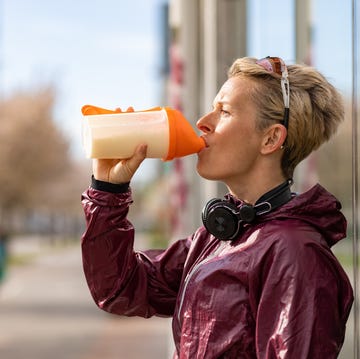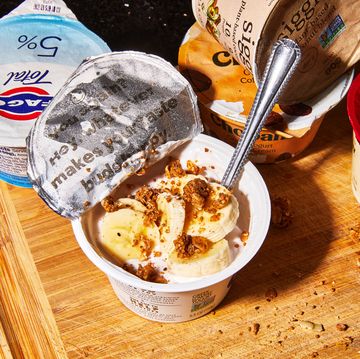We earn a commission for products purchased through some links in this article European Journal of Applied Physiology, from researchers at Victoria University in Australia, takes a look at two commonly used performance aids: beta-alanine and baking soda. What's interesting is that both are supposed to work in roughly the same way, by counteracting the increasing acidity (i.e. decreasing pH, or increasing number of hydrogen ions) in the muscles following intense exercise:
- Beta-alanine is converted in the body to a substance called carnosine, which works within the muscle cells to keep pH stable.
- Baking soda, on the other hand, provides carbonate ions that circulate in the blood, stabilizing pH levels outside the muscle cells. This then allows more hydrogen ions to be shunted out of the muscle cells into the bloodstream, so it has the indirect effect of keeping pH stable within the muscle cells.
One question that's worth asking right off the top is: Why is it important to stabilize pH? The assumption used to be that increasing acidity caused the muscle burn associated with intense exercise and muscle fatigue, so counteracting that acidity would allow you to exercise harder/longer/faster. These days, the answer is more along the lines of "We're not really sure." What the authors of this paper say is that increased acidity is "not the primary cause" of muscle fatigue, but may still have some effects on muscle fiber contraction.
In the study, they used a fairly complicated double-crossover design to test the results of beta-alanine and baking soda, both alone and together, with eight recreationally active volunteers. The beta-alanine protocol was six weeks starting at 4.8 g/day and increasing to 6.4 g/day for the last two weeks; the baking soda protocol was 300 mg per kilogram of body weight 90 minutes before exercise. There were two main exercise tests, both on stationary bikes: a repeated sprint test of 5 x 6-second sprints with 24 seconds rest, and a time-to-exhaustion test that took between 2 and 2.5 minutes.
Without further ado, here are the results. There was no significant effect in the repeated-sprint test. In the time-to-exhaustion test, beta-alanine but not baking soda offered an advantage (BAl is beta-alanine, SB is baking soda, Pl is placebo):
So what does this tell us? Well, with eight subjects, we have to be fairly cautious about drawing definitive conclusions. But under these particular conditions, beta-alanine certainly looks like a better bet than baking soda.
There's an interesting wrinkle when you look at the lactate measurements taken during and after the exercise tests. One possible benefit of maintaining pH at relatively constant levels might be that you're able to sustain a greater effort during extreme fatigue using anaerobic energy production, which would result in higher levels of lactate (a byproduct of anaerobic metabolism) in the blood. The lactate results do indeed reveal higher lactate levels a few minutes after the time-to-exhaustion test -- but only in the baking soda conditions. So baking soda does seem to affect anaerobic metabolism as expected, but it's beta-alanine that boosts performance most effectively. As the authors point out, this suggests that beta-alanine may boost performance through entirely different mechanisms (one possibility they mention is that carnosine is an antioxidant).
This doesn't mean baking soda is useless; a number of other studies have found performance benefits, particularly in exercise lasting between 1 and 10 minutes. However, there seems to be a wide variation in response -- it works for some people, doesn't work for others -- so the only way to find out if it works for you is to try it in training.
***
Read Nutrition & Weight Loss, and follow the latest posts via Twitter, Facebook, or RSS.














